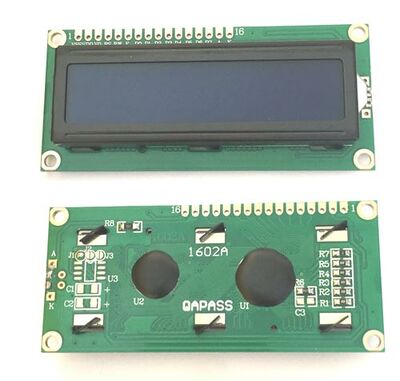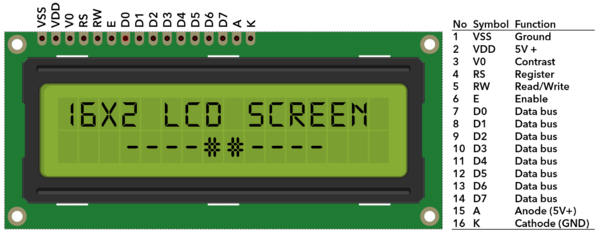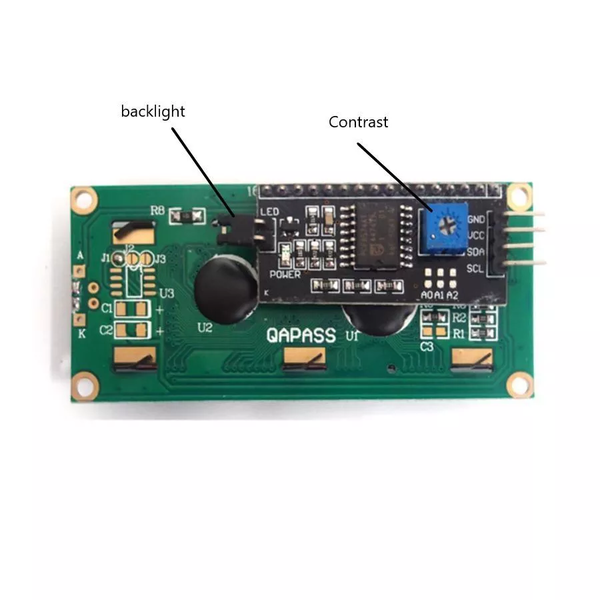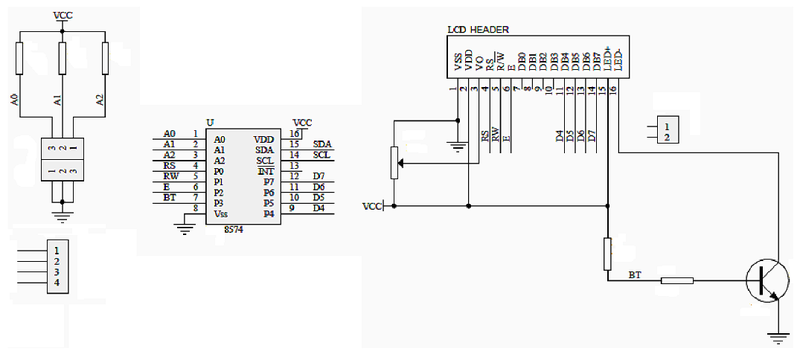Difference between revisions of "STM32 I²C LCD"
| Line 12: | Line 12: | ||
[[File:I2C extender on LCD display.webp|600px]] | [[File:I2C extender on LCD display.webp|600px]] | ||
| + | |||
| + | The [[I²C]] extender is connected in the following way: | ||
| + | |||
| + | [[File:I2c Module to LCD.png|800px]] | ||
== Miscellaneous Links == | == Miscellaneous Links == | ||
Revision as of 05:13, 2 June 2022
LCD Display modules are readily available and they are dirt cheap (< $2 typically). They come in different "resolutions" typically expressed as number of characters and number of lines. Common ones are 1602 (16 characters in 2 lines) and 2004 (20 characters in 4 lines).
The modules are interfaces by an 8 bit parallel data bus (can be operated in 4 bit mode) and some control signals:
These can of course be "driven" by an STM32 by interfacing these pins directly, but at a minimum that would tie up 8 GPIO pins for one display.
To cut down on the number of pins needed a GPIO extender can be used and because this approach is quite a lot easier a lot of the LCD modules come with an I²C GPIO extender already attached.
The I²C extender is connected in the following way:



